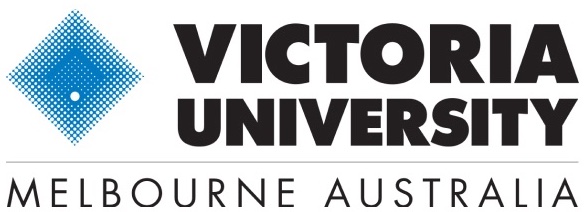Customer Stories
Silkwood School – Helping Engaged Students Achieve their Dreams
The LMS at my university wasn’t user-friendly and made life quite difficult for us as students. That really showed me that choosing the right LMS is key for any educational...
-
Victoria University – Reimagining the education system
Brightspace proved to be the optimal framework to fundamentally change the way we provide education to students. Mike Sturmey, Associate Director of Digital Learning Environments, Victoria University Challenge VU aims...
-
Vision Australia – A clear vision of learning for all
One of the main things that attracted us to D2L’s Brightspace platform was its rich accessibility options. Laura Hendrey, Learning and Development Coordinator, Vision Australia Challenge Aiming For Better Accessibility...
-
Epworth Healthcare – Using Brightspace to implement a unique CBE experience
Challenge As a leading teaching hospital in Australia, Epworth Healthcare is responsible for educating the next generation of health professionals through its medical, nursing, and health professional education and training...
MORE THAN 1,000 ORGANIZATIONS IN OVER 40 COUNTRIES AROUND THE WORLD RELY ON D2L TO HELP THEM TRANSFORM LEARNING.
Queen’s University’s time-saving tech solutions – Smith School of Business re-engaged faculty & cut back on administrative burden
When it came to their learning management system, the IT staff at Queen’s University’s Smith School of Business used to spend much of their energy just keeping the lights on. The Business School used an LMS built in-house, and it simply sucked up too much time, says Troy St. John, associate director of IT for learning technology and application development. When the school switched to Brightspace, it was like a weight had been lifted. “The custom solution we had in place required a ton of resources dedicated to keeping it up and running,” he says. “We didn’t get a lot of time to add new or innovative things professors asked for. So they kind of stopped asking.” Brightspace’s Valence API gave the IT team a new digital sandbox, allowing them to build cool and useful tools against the existing technology. “Our program offers a really high-touch level of service to students,” he says. “And now, these new tools let us – and our faculty – deepen that commitment.”
The University of Colorado Boulder – Creating a customized orientation guide for students’ first-year transition
The transition from high school to university can be an exciting but often overwhelming experience. To help ease the transition, the University of Colorado Boulder used to require incoming students to attend a two-day, on-campus orientation program where students would learn more about campus resources, academic advising and enrolling in courses. However, the face-to-face orientation wasn’t always an ideal fit, says Courtney Fell, Learning Experience Designer at the university. The sessions were content heavy and sometimes overwhelming for students. The experience was sometimes a challenge for out-of-state attendees, who had to coordinate travel and accommodations. Parent attendance was also on the decline, Fell says, which meant they were often missing crucial information about their children’s impending university experience. In an effort to improve the orientation process and better help students set themselves up for success, the university undertook an ambitious project: in only a few months, it created a completely personalized introduction to the school, the New Student Welcome Experience. Students who want to come to campus can attend a New Student Welcome Day, but it is no longer required for all students.
Valdosta State University – Using Brightspace to implement a unique CBE experience
In November 2009, President Obama launched the Educate to Innovate initiative to move American students from the middle to the top of the pack in science and math achievement over the next decade. Recognizing that great teaching is part of any child’s success, President Obama also issued a challenge to the nation to recruit and prepare more than 100,000 new teachers over the next decade. Rising to this challenge, Valdosta State University (VSU) has turned to an innovative Competency-based Education (CBE) initiative delivered online via the Brightspace platform to raise the technical skill levels of elementary teachers currently working in the State of Georgia.
University of Central Oklahoma – Helping students track and showcase learning that happens outside the classroom
There is more to a student than just a letter grade. Unfortunately, there is no letter grade to document the experiences and skills a student develops outside the classroom. To address this challenge, the University of Central Oklahoma (UCO) developed the Student Transformative Learning Record (STLR) as a way to provide students with new tools to showcase a more detailed and complete picture of their experiential learning activities.
Lakeland College – Helping students take charge of their education online
Lakeland College students have the opportunity to take charge and participate in shaping their own education at the college. How? Through career-relevant, student-run projects, operations and events. The college’s students are drawn to Lakeland’s unique, hands-on education approach. Students have the opportunity to leverage a variety of instructional methods from face-to-face, blended, and distance learning to realize their educational goals, become career-ready, or enhance their professional skill set for career advancement.
Stephen F. Austin State University – Five-star accommodation
It had always been a point of pride—Stephen F. Austin State University (SFASU) enjoyed a reputation for offering the most in accessibility. When it came to online learning, however, feedback was less than glowing. Students and faculty who needed accommodations, particularly the visually impaired, were regularly calling for help. Unfortunately, the learning management system (LMS) used by SFASU made it impossible to resolve the recurring issues. Determined to reverse the situation, they set out to find a learning platform that would meet their accessibility requirements. In order to get it right, they asked for help from those who would benefit the most: students and faculty.




